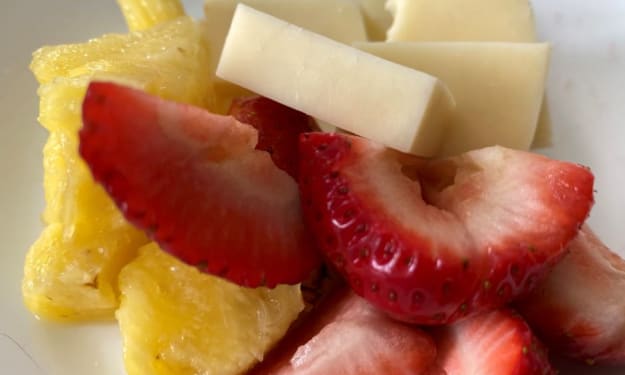Unleashing Creativity: Exploring the World of AI Music Generators
Experience Simplified

In recent years, the intersection of artificial intelligence (AI) and music has yielded remarkable advancements. One of the most fascinating developments is the emergence of AI music generators. These innovative tools leverage machine learning algorithms to compose original melodies, harmonies, and even complete musical compositions.
In this blog post, we'll delve into the captivating realm of AI music generators, exploring their potential, impact on creativity, and the exciting possibilities they bring to musicians and music enthusiasts alike.
Understanding AI Music Generators:
AI music generators are software applications that employ deep learning techniques to analyze vast amounts of musical data. By learning patterns, structures, and styles from existing compositions, they can generate new musical pieces that mimic various genres and even compose original music with unique characteristics.
These AI models utilize neural networks and sophisticated algorithms to understand the complexities of music theory, enabling them to generate coherent and aesthetically pleasing melodies.
Unleashing Creativity and Inspiration:
AI music generators act as powerful creative tools that offer endless possibilities for musicians, composers, and songwriters. They can serve as a wellspring of inspiration, generating fresh musical ideas that can jumpstart the creative process.
These tools provide musicians with a vast library of melodies, chord progressions, and arrangements to explore, experiment with, and build upon, fostering innovation and pushing the boundaries of musical composition.
Collaboration between Humans and Machines:
Rather than replacing human musicians, AI music generators encourage collaboration and augmentation. Musicians can leverage these tools to enhance their compositions, infuse unique elements, or experiment with unconventional musical styles.
By combining human creativity and the capabilities of AI, musicians can produce truly extraordinary and innovative works that may not have been conceived otherwise.
Personalization and Customization:
The best AI music generators can adapt to individual preferences and musical styles, making them versatile tools for musicians. They can learn from the user's input, creating personalized musical recommendations and compositions tailored to their specific needs.
Musicians can fine-tune the generated music by specifying parameters like tempo, instrumentation, mood, and complexity, resulting in a highly customizable and personalized musical output.
Bridging Musical Styles and Cultural Boundaries:
AI music generators have the potential to bridge gaps between different musical styles and cultural traditions. By analyzing diverse musical genres and incorporating elements from various cultures, these tools can create unique fusions, cross-pollinating musical traditions and expanding artistic horizons.
This cross-cultural exploration enables the creation of eclectic compositions that showcase the beauty of global musical diversity.
Ethical Considerations and Authenticity:
While AI music generators offer numerous advantages, discussions around authenticity and ethical considerations arise. Questions emerge about the originality of AI-generated compositions and the implications for copyright and intellectual property.
Additionally, ensuring that AI-generated music respects cultural sensitivities and avoids appropriating cultural expressions becomes crucial. Addressing these concerns will be pivotal in responsibly and ethically integrating AI music generators into the creative landscape.
Ways in which AI song generators are being used in the music industry
AI music generators have several applications in the music industry, revolutionizing the way music is composed, produced, and experienced. Here are some key applications of AI music generators:
Composition Assistance: AI music generators can assist musicians and composers in the composition process by providing inspiration, generating melodies, harmonies, and chord progressions. They can help overcome creative blocks and serve as a starting point for original compositions. Musicians can use AI-generated music as a foundation and then personalize and refine it with their artistic touch.
Soundtrack Creation: AI music generators have the ability to create soundtracks for various media, including films, video games, advertisements, and podcasts. They can analyze the visual or narrative elements and generate music that complements the mood, atmosphere, and pacing of the content. This saves time and resources for content creators and allows for efficient customization of soundtracks.
Personalized Music Recommendations: Streaming platforms and music services can utilize AI music generators to create personalized playlists and music recommendations for users. By analyzing a user's listening habits, preferences, and historical data, AI can generate recommendations tailored to individual tastes, leading to a more engaging and personalized music discovery experience.
Remixing and Mashups: AI music generators can be used to remix existing songs or create mashups by combining elements from different tracks. By analyzing the structure, tempo, and musical components of multiple songs, AI can intelligently blend them to create unique remixes and mashups, providing fresh perspectives on popular music.
Virtual Session Musicians: AI music generators can simulate the sound and playing styles of various instruments, allowing musicians to incorporate realistic virtual session musicians into their compositions. This enables solo artists or producers to create complex arrangements without the need for additional musicians or recording sessions, offering cost-effective and versatile options.
Interactive Music Experiences: AI music generators can be employed to create interactive music experiences, such as adaptive soundtracks in video games or immersive installations. By responding to user inputs, AI can dynamically generate music that adapts to the player's actions or the environment, enhancing immersion and creating a more personalized and engaging experience.
Music Education and Training: AI music generators can be used as educational tools to aid in music theory learning, composition training, and improvisation practice. They can provide real-time feedback, suggest harmonic progressions, and offer interactive exercises, helping students and aspiring musicians develop their musical skills and creativity.
Conclusion:
AI music generators represent a remarkable breakthrough in the realm of music composition and creativity. By blending human artistry with the capabilities of artificial intelligence, these tools open up new avenues for musical exploration, inspiration, and collaboration.
While challenges related to authenticity and ethical considerations must be navigated, the potential for innovation and artistic expression with AI music generators is undeniably captivating.
As musicians and technology continue to evolve hand in hand, we can look forward to a future where AI music generators contribute to the tapestry of human musical expression in exciting and unforeseen ways.
About the Creator
Thomas Wattson
Thomas Wattson is a content marketer and Internet marketer who has been in the industry for over 10 years. He has a vast amount of experience in both industries and has helped many businesses achieve their marketing goals.






Comments
There are no comments for this story
Be the first to respond and start the conversation.